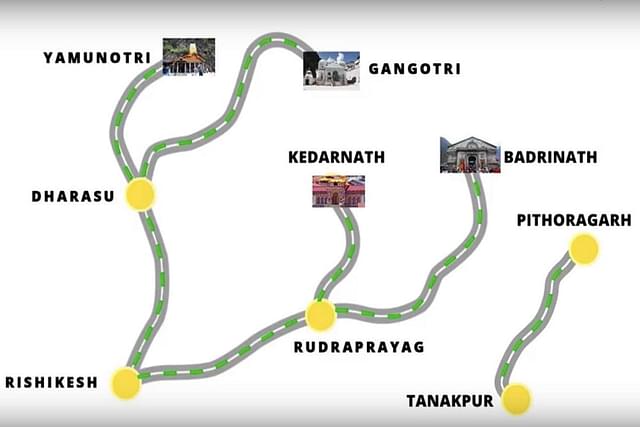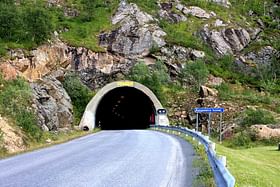The Uttarakhand government is set to establish comprehensive standard operating procedures (SOPs) for the construction and maintenance of tunnels, prompted by the recent Silkyara incident in Uttarkashi.
National Highways and Infrastructure Development Corporation Limited (NHIDCL), a body under the Union Ministry of Road Transport and Highways, had been monitoring the Silkyara tunnel even during its construction phase.
In response to the collapse of a section of the 4.5-km-long tunnel between Silkyara and Dandalgaon on November 12, trapping 41 workers due to a landslide, the Uttarakhand Disaster Management secretary, Dr. Ranjit Kumar Sinha, confirmed the development.
The proposed SOPs will apply to state, central, and joint projects within the state, filling the current gap in rule sets specific to the state. While there are existing SOPs at the central level, the state is now working on its own set of guidelines with the assistance of technical experts.
Dr. Sinha stated, “We are investigating the Silkyara tunnel incident, identifying its causes and safety gaps to introduce SOPs for tunnel construction to prevent such incidents in the future,” reports Hindustan Times.
A state government official disclosed, “The SOPs will provide detailed step-by-step guidelines and safety measures, emphasising efficient and secure completion of tunnelling projects. Key areas covered will include project planning, risk assessment, site preparation, excavation, tunnel lining, equipment operation, quality control, and waste management.”
Earlier, the Union Ministry of Road Transport and Highways announced its intention to review existing SOPs for tunnel construction and maintenance, aiming to prevent incidents similar to the Silkyara disaster.
The ministry has requested details from all involved agencies in the 17-day rescue operation to identify gaps and loopholes.
An investigation revealed that the geology report submitted before commencing the Silkyara-Barkot tunnel had indicated weak rock conditions, emphasising the need for adequate support structures.
Despite these warnings, the report highlighted the lack of an escape passage in the Silkyara tunnel, disregarding government guidelines recommending emergency exits for tunnels exceeding 1.5 km in length.
Moreover, four years prior to the tunnel collapse, residents of a local village had raised concerns about irregularities in the construction work.
In a letter to the Uttarkashi district magistrate in April 2019, the head of Paul Gaon panchayat alleged that the contractor, Navayuga Engineering Company Limited (NECL), was carrying out the construction in “utter disregard” for established norms.
The collapse that occurred impacted the 4.5-km-long tunnel on the Brahmakhal-Yamunotri National Highway, leading to a 17-day rescue operation to evacuate the trapped workers.
The Silkyara tunnel, which is a crucial component of the Char Dham all-weather road project initiated by the central government, is located approximately 30 km away from Uttarkashi.
The under-construction tunnel is part of the ambitious Char Dham project, a national infrastructure initiative to enhance connectivity to the Hindu pilgrimage sites of Badrinath, Kedarnath, Gangotri, and Yamunotri.

Char Dham Mahamarg Vikas Pariyojana
A flagship initiative of the Ministry of Road Transport and Highways, the programme includes the widening and improvement of 825 km (existing 889 km) of national highways to provide faster and safer road connectivity from Rishikesh to Janki Chatti (Yamunotri), Gangotri, Gaurikund (Kedarnath) and Mana (Badrinath) including Tanakpur to Pithoragarh section of Kailash-Mansarovar route in Uttarakhand, at an estimated cost of Rs 12,072 crore.
The National Highways selected for upgradation passes through the districts of Tehri Garhwal, Uttarkashi, Pauri Garhwal, Rudraprayag, Chamoli, Pithoragarh, Champawat and Dehradun in Uttarakhand.
Laying the foundation stone in December 2016, Prime Minister Narendra Modi described the project as a tribute to those who lost their lives during flash floods in the state.


